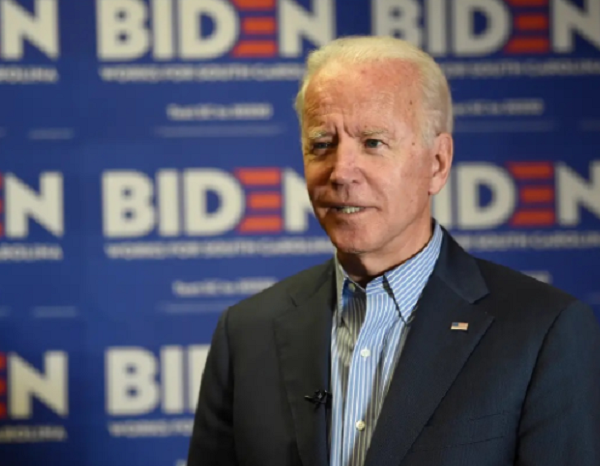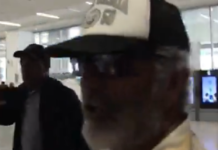An inquiry has been initiated into the U.S. Department of Energy (DOE) following revelations that the Biden administration allocated billions of dollars in taxpayers’ funds to a dubious solar company.
The DOE, under President Biden, granted a $3 billion award to a solar energy company accused of defrauding vulnerable customers. Congressional Republicans, led by House Energy and Commerce Chair Cathy McMorris Rodgers (R-WA) and Senate Energy and Natural Resources Ranking Member John Barrasso (R-WY), are conducting investigations into the DOE’s decision.
In a letter addressed to DOE Loan Programs Office Director Jigar Shah, the Republicans expressed serious apprehensions about providing financial support to the allegedly corrupt Sunnova Energy Corporation, based in Houston. The concerns raised stem from previous reports outlining Sunnova’s history of scams and deceptive practices targeting consumers.
“We are alarmed about recent, credible reports that Sunnova has racked up numerous consumer complaints, including those alleging troubling sales practices, such as Sunnova pressing elderly homeowners in poor health to sign long-term contracts costing tens of thousands of dollars,” they wrote to Shah.
“These reports cite interviews with individuals who struggled to deal with large contracts that their elderly parents signed shortly before passing away as well as state consumer complaints alleging maintenance delays and predatory sales strategies.”
In late September, the DOE Loan Programs Office disclosed the closure of a $3 billion partial loan guarantee for Sunnova’s Project Hestia. This funding was allocated to facilitate the provision of solar and battery storage to low-income individuals, aligning with President Biden’s comprehensive green agenda. The agreement represented the largest-ever federal commitment to solar power.
The stated purpose of the project is to offer loans for clean energy systems to approximately 75,000 to 115,000 homeowners across the U.S. and Puerto Rico. Despite these intentions, reports mentioned in the letter from McMorris Rodgers and Barrasso highlight specific instances of fraud, with the GOP leaders cautioning that such incidents are not isolated.
Notably, earlier this year, the Better Business Bureau issued an alert for Sunnova, assigning it an “F rating.” This rating was attributed to a pattern of deceptive sales practices, subpar customer service, and delays in repair technicians’ arrivals. Consumers reported that their concerns were only addressed after filing complaints with the Better Business Bureau.
“To this date, despite countless phone calls, we still have not received service for that part almost 5 months later,” one complaint said.
“Our panels have not been working, therefore we are not receiving any benefit for them given that we are not receiving any credit from our electrical company due to them not working.
“We have tried over 100 times to call and work with the company to get them fixed.
“Our solar system (Sunova) [sic.] has not been working properly for 4+ months,” another October complaint states.
“We have contacted Sunova [sic.] multiple times with little to no action.
“Our contract states that Sunova [sic] will monitor our system and if there is an issue will fix in a timely manner.
“We have been fighting with this company for months to fix our system with no success.
“We have paid over a thousand dollars for electricity to the national grid since our system isn’t working.
“Sunova [sic] is in breach of contract.”
In 2019, Puerto Rico’s Energy Bureau released a report, as per USA Today, accusing Sunnova of providing misleading information to consumers regarding costs, contract duration, and potential savings associated with their services. The report went on to assert that the company’s practices during the contracting process did not align with the obligations of power companies.
Sunnova, holding a majority of the residential market share in Puerto Rico, faced 436 complaints in the aftermath of Hurricane Maria, according to the report. Additionally, the Washington Free Beacon reported last month that Sunnova is alleged to have taken advantage of vulnerable consumers, including the elderly and those in poor health. The report highlighted instances where Sunnova sales representatives, going door-to-door, convinced such individuals to sign 25-year solar panel leases.
“It was truly ripping off old people,” Texas resident Terry Blythe told the outlet.
“It was the biggest ripoff I’ve ever seen.”
Blythe said that they coerced her elderly father into signing 25-year solar panel lease in even though he was 86 years old and suffering from dementia.
“All customers, regardless of age, are required to complete a thorough validation process where we confirm their identity and ensure that they have read and comprehended the terms of their agreements,” a Sunnova spokesperson told the Washington Free Beacon.
They further clarified that the company “cannot and does not decline to enter into an agreement based on a customer’s age.” The spokesperson emphasized Sunnova’s full dedication to assisting all customers in resolving any issues that may arise during the life of their agreement or due to external factors.
Established in 2012, Sunnova went public in 2019, offering rooftop solar panel installations, primarily for residential customers, through low-cost leases. However, the company has experienced substantial financial losses in recent years, with a reported loss of $147.5 million in 2021 and $130 million in 2022. Since January 2021, Sunnova’s stock price has witnessed a decline of more than 77%.






